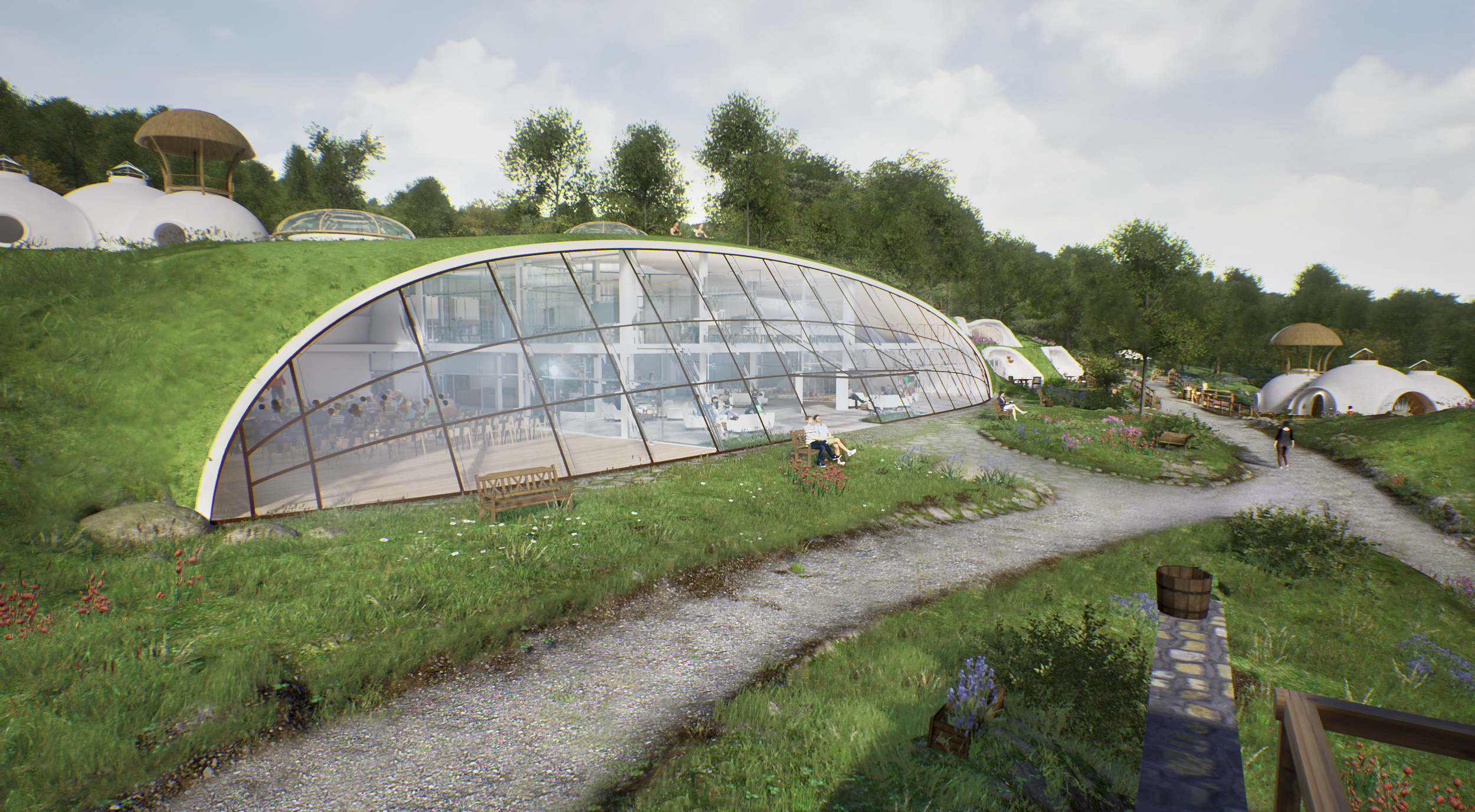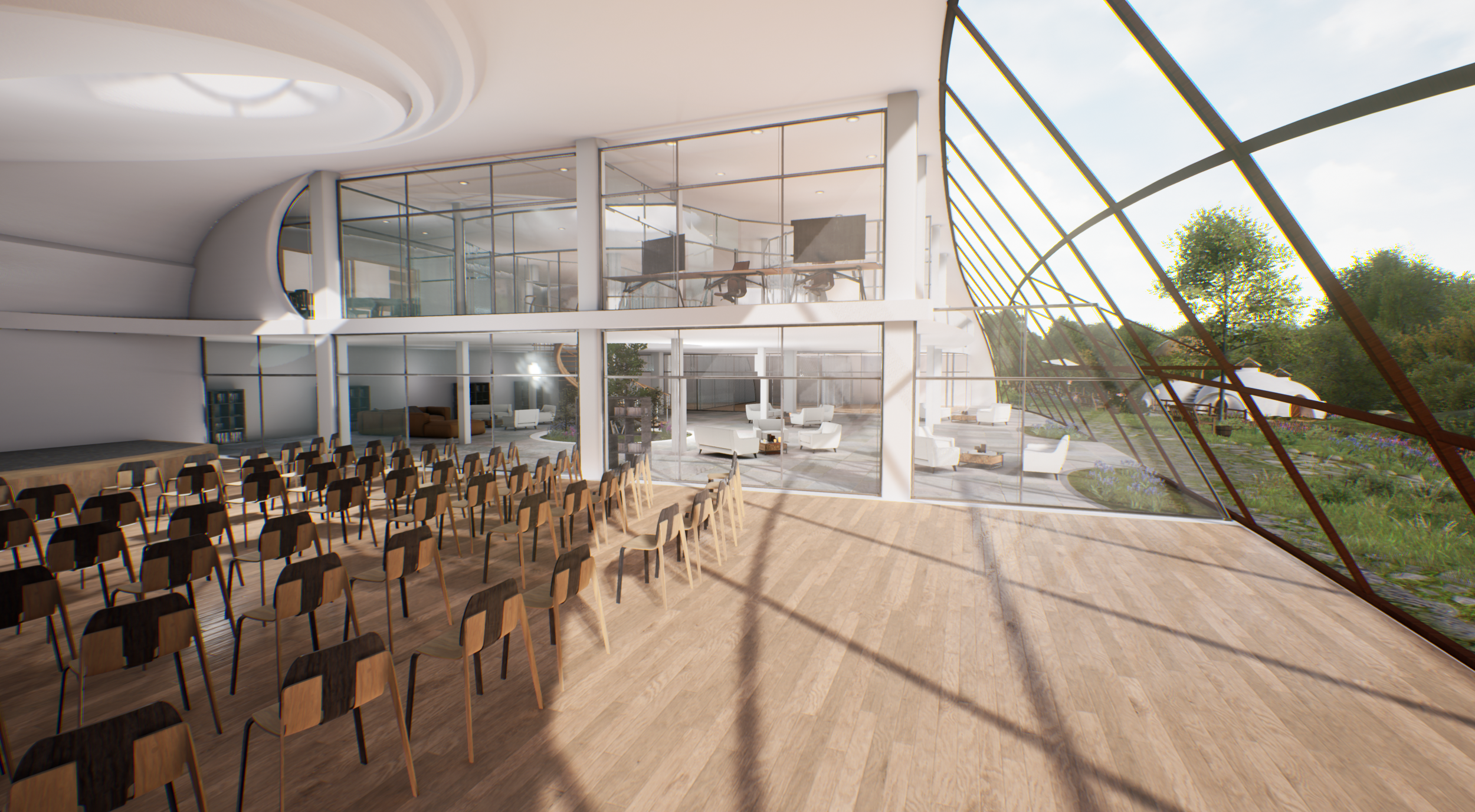
Zion Project | OBJECTIVES
The main purpose of the Zion Project is to show that a different way of living is possible and the main way to achieve this is through education, because by teaching others our development method, society as a whole will be able to initiate a process of change. Those who introduce innovation today seem not to take into account the knock-on-effect of changes, new discoveries and new products not so much on the specific geographical area, which will benefit from greater efficiency and improvement, but on society itself.
The people of this planet are not ready to absorb the impact of this industrial revolution which is without precedent. People need to be taught a different way to use their time. Sooner or later manpower will be totally replaced by machines which are much more efficient and in the end far more cost effective. As a result there will be crowds of people without an income who will fall below the poverty line which will inevitably end up causing dissatisfaction and even social unrest.
Nowadays humanity must re-invent itself from scratch and those who are pioneers and supporters of this revolution cannot ignore the need for re-educating people to a new mentality both in order to benefit from the advantages of this innovation and to absorb its impact.
The idea, i.e the Zion Project, is to create a campus, in other words an athenaeum, a university of the sustainability and of social innovation that prepares people to the world to come and at the same time shows them a model of town or village that is developed according to the latest innovation following the simple guidelines of energy and food self-sufficiency and in full respect of the environment.
So the campus offers the use of products and services, the opportunity to socialise and share in addition to learning how all this knowledge can be put into practice (i.e. models) and reproduced everywhere, partially or in its entirety. Every learner sees, experiences first hand and takes what she/he has learnt home to put it to fruition so as to improve his/her own life.
Furthermore, this “smart-campus” will be a permanent influential resource in the area where it has been built. In addition to learning a sustainable model, how it works and can be applied, students will have the chance to realise through direct experience (as in a workshop or a training camp) how to implement it and how an ideal, a dream can become reality and a benefit to one and all. This is achieved by means of a training program aimed at changing the mind frame and building above all an echo-sustainable and “resilient” “consciousness”, that is able to withstand the knocks of life.
The centrality of the person and the development of his/her “consciousness” is paramount to this project. Those taking part in various seminars and study paths will start to produce a change in their mentality becoming self-sufficient to start with, learning how they work biologically and emotionally, both from a physiological and psychic point of view, and in so doing making their own existence more sustainable or at least bearable compared to now.
This sprouts from the certainty, from which this project originates, that unless we change people’s mental attitude there can be no sustainability. The need to focus on teaching and training indeed comes from the realisation that the emotional balance of the modern man is fundamentally altered and as he does not fully understand these processes he is unable to manage them.
As a result he becomes more aggressive, unable to comprehend, more narrow-minded and ignorant, obsessed with “sterile” stereotypes and systems of beliefs, including extremely dangerous religions and/or extremisms based on prejudice and discrimination, not just social but racial and gender. The Zion Association researches and develops those tools that are best suited to human sustainability and that resonate with a regular and ideal functioning of human beings.
The purpose of such tools or “good practices” (meant as methods, techniques and activities that have produced superior results to any alternatives) is also to re-balance the natural psychic and creative abilities that we are no longer in touch with because of our stressful modern everyday life and the detachment from our true nature as well as other factors including diet and pollution. People are no longer capable of recreating the ideal conditions to stimulate those processes that they need to keep physically, mentally and emotionally healthy (smart health).
The training extends to the study and teaching of all those disciplines useful to learning the design and management of the natural ecosystems which are resilient, productive and stable. Although the learning method has its pre-defined guidelines, our intent remains to stimulate the ability of observing and coming up with personal solutions which is fundamental to all the planning processes. Ethics and principles are but a stimuli to sustainability and resilience planning.
Here is a summary of the various goals and potentiality of our project:
- Internal benefits – use of new technology resources
- Constant training – university of sustainability and social innovation, where all the modern and sensible sciences can be studied and applied to the actual reality where students live
- Improving living conditions – fostering the concept of abundance so much so that people will want to change lifestyle to one that pivots on the psycho-biophysical well-being where the cultural and social activities allow for further intellectual development of each individual.
- Education on sustainability and direct field trial of existing efficient models of development – teaching methods of observation and development, helping to reproduce what has been learnt and seen, supporting the acquisition of new skills and practices as well as new values, attitude, behaviour and governance mechanisms
- Learning a model of development and professionalism
- Green building and use of environmentally-friendly materials.
- Water collection, treatment and management (drinking and waste water) – implementing phytopurification
- Waste reduction, reuse and recycle – the waste of one process becomes raw material of another
- Creating an electric and thermal photovoltaic/biomass co-generation (Combined Heat and Power or CHP) mixed production system
- Food production and distribution according to the principles of “security food” – defined by the Food and Agriculture Organization (FAO) of the United Nations (UN): “Food security exists when all people, at all times, have physical, social and economic access to sufficient, safe and nutritious food which meets their dietary needs and food preferences for an active and healthy life. Household food security is the application of this concept to the family level, with individuals within households as the focus of concern”
- Research and development of new experimental and replicable models of (food and energy) self-sufficiency
- Realisation of a social network of information and product sharing
- Reproducibility of the project anywhere
- Relevant and functional activities closely linked such as informational publications, library and editorial projects, also within the audio-visual field, targeted to associates and third parties.
Food production will need to reach very high levels of self-sufficiency and this can be achieved within 5 years. There will be areas dedicated to forest gardens where the following can be grown: fruit trees and bushes; aromatic, officinalis and edible plants.
Forest gardens are spaced out by fields of cereals, leading to an agroforestal area, much healthier for the soil and local fauna, as the high biodiversity allows the system to achieve the stability that translates into sustainability. Other food production system, such as hen-houses for eggs and beehives for honey are essential to ensure biodiversity also for those who are residents or on a temporary stay.
All the water that is available for agriculture and the other food production systems is collected and distributed in a natural way through a system of ponds or small lakes, canals and special ploughing using the “Keyline system” technique. All this, coupled with bodies of water (swales, for water retention and conveyance) where water is collected, is to the benefit of the natural regeneration process of the land and the people, in that the maintenance work through watering is drastically reduced.
This project allows a transition from the urban model towards a sustainable agriculture and rural development introducing elements of modernisation to a traditional rural model which has worked well for centuries. The idea is to create something that goes beyond the enogastronomic tourism, a rational and intelligent alternative in order to show that there is a more rational and resilient way of living and to utilise resources.
This pilot project will provide the necessary knowledge to reproduce this model anywhere, an example to copy and adjust to individual needs learning how to study the territory and redesign it in compliance with the principles and the methods learnt at the Zion school.






Leave a Comment